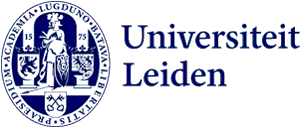Lecture
AI for Bad: Superpowers, Cydiplo and the Myth of Global Regulation
- Date
- Thursday 14 September 2023
- Time
- Address
-
Wijnhaven
Turfmarkt 99
2511 DP The Hague - Room
- WH2.02
Registration
You can attend this seminar in-person at Wijnhaven or online via livestream at the link below.
RegistrationDuring this seminar organized by The Hague Program on International Cyber Security, Richard Aldrich will discuss his current research focused on AI for Bad: Superpowers, Cydiplo and the myth of global regulation. Richard Aldrich is Professor of International Security at the University of Warwick and will be undertaking a Jean Monnet Teaching Exchange on cyber diplomacy in September, hosted by the Institute of Security and Global Affairs' research group Intelligence and Security.
After Richard Aldrich's talk, Bas Rietjens, Professor by Special Appointment Intelligence in War and Conflict, will give a short reflection.
About this talk
AI is not just about economic advancement or scientificutopia. It is also a secretive technology of espionage, political control and military dominance. For Beijing’s autocracy, AI is an existential priority. Meanwhile, the likely prospect of China overtaking the US in applying AI in the next ten years is nothing short of an obsession for Washington. A dozen countries now see AI and associated technologies as their preeminent task, as do the Big Techs. We are now in an unconstrained AI arms race which is perceived as a ‘winner takes all’ struggle for planetary dominance. Meanwhile the plodding governance discourse remains one of ‘AI for Good’ focused either on a European product safety approach for the North or access and capacity-buildingfor the Global South. We suggest that these regulatory conceptions areout-dated and perpetuate dangerous myths.
About Richard Aldrich
Richard J. Aldrich is a Professor of International Security at the University of Warwick and joined PAIS in September 2007. In 2019 he completed a Leverhulme Major Research Fellowship to investigate the "Future of Secrecy" in a world characterised by increasing technology and transparency. He is also involved in a H2020 project on the Impact of Technological Transformations on The Digital Generation called DigiGen and an EU Jean Monnet project on Cyberdiplomacy.
His main research interests lie in the area of intelligence and security communities. His most recent research - conducted jointly with JD Work - has focused on 'Project Spaceman' and looks at pioneering British efforts in the area of computer security and automatic data processing. A related paper was recently published in Intelligence and National Security.
Over the last few years he has led a large AHRC project entitled "The Central Intelligence Agency and the Contested Record of US Foreign Policy" which received follow on funding. This involved a team of eight scholars at the universities of Nottingham and Warwick. Some of the work of the team was published in a special edition of the journal History. Following on from this project he joined with his colleague Chris Moran to write an essay on Donald Trump and his relationship with the CIA for Foreign Affairs.
